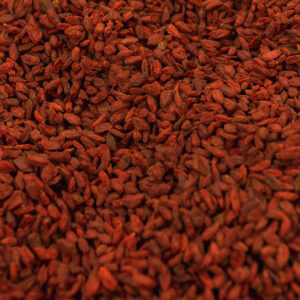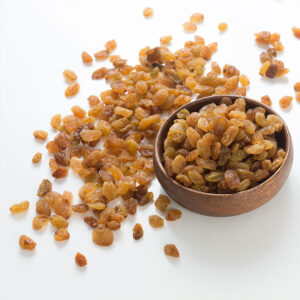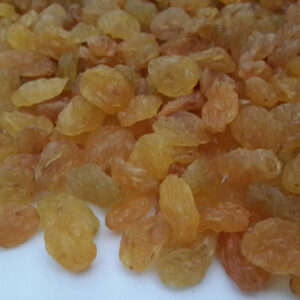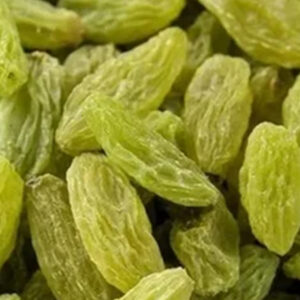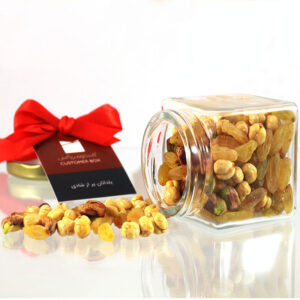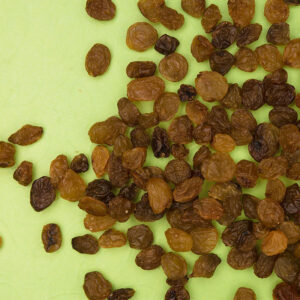Raisins
Golden Kashmari Raisins
Golden Raisins
Ripen fruits of different varieties of seedless grapes, which have smooth round shape and amber or golden yellow color. Sulphur gas is being used in the drying process.
The product comes from seedless grapes of the Vitis vinifera variety. Golden Raisins are grown in the sunny vineyard in Iran. They are made using sulfur fumigation process and shade dried so they are golden amber in color with a naturally sweet and fruity flavor.
After two times washing (Double washed), golden raisins are dried, coated with vegetable oil, stemmed, mechanically cleaned, laser sorted and metal detected under care of hygienic condition.
Packaging: 10 KG Carton/ 12.5 KG Carton
Storage: In a cool, dry, clean and well ventilated place. Recommended storage temperature is between 10-15 Celsius degrees
Green Kashmari Raisins
Raisins
The sultana is a "white" (pale green), oval seedless grape variety also called the sultanina, Thompson Seedless (United States), Lady de Coverly (England), and oval-fruited Kishmish (Iran, Turkey). It is assumed to originate from the Asian part of the Ottoman Empire. In some countries, especially Commonwealth countries, it is also the name given to the raisin made from it or from larger seedless grapes; such sultana raisins are often called simply sultanas or sultanis. These are typically larger than Zante currants (which are actually a kind of dried grape, not currants in the botanical sense), and the Thompson variety is smaller than many seeded raisins. In the USA, the name "raisin" is applied to all dried grapes, so that the breakfast cereal known "Sultana Bran" in Australia and the United Kingdom is called Raisin Bran in the United States. Other types of raisins like Golden, Sundried and etc are coming from different drying process of Sultana raisins.
Another seedless grape variety from the former Ottoman Empire, the round-fruited Kishmish, is also dried to make a larger sultana raisin especially in Iran Empire. Raisins can contain up to 72% sugars by weight, most of which is fructose and glucose. They also contain about 3% protein and 3.7%–6.8% dietary fiber. Raisins, like prunes and apricots, are also high in certain antioxidants, but have a lower vitamin C content than fresh grapes. Raisins are low in sodium and contain no cholesterol.
Data presented at the American College of Cardiology's 61st Annual Scientific Session in 2012 suggests that, among individuals with mild increases in blood pressure, the routine consumption of raisins (three times a day) may significantly lower blood pressure, especially when compared to eating other common snacks.
Production:
1-Washing: In the washing part the raw material (Dried Grape) is double washed and after adjusting the hummidity on heating room goes to sorting and packing part.
2- Sorting and Packing:For sorting raisins Goldenlotus co. uses Laser technology by Laser Sorter Machine (BEST Helius 2015) and X-Ray Machin (BEST IXUS 2015) and finally the cartons pass from Metal Detector for final check.
Sun dried raisin is called to ripened fruit of different varieties of grapes which is being dried in direct sunlight and natural air flow and without adding any material; it turns to brown in this process. Temperature and humidity of the environment during the drying process is an important factor which directly affects the quality of product. These kinds of raisins are available in types of seeded and seedless.

